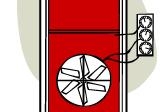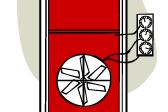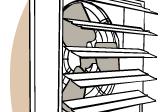Shower checklist
Created and approved by the BUILD.com.au team, this shower checklist is designed to guide you through the process step by step—whether you’re just starting...
Bath checklist
Created and approved by the BUILD.com.au team, this bath checklist is designed to guide you through the process step by step—whether you’re just starting...
Heating checklist
Created and approved by the BUILD.com.au team, this heating checklist is designed to guide you through the process step by step—whether you’re just starting...
Cooling checklist
Created and approved by the BUILD.com.au team, this ventilation checklist is designed to guide you through the process step by step—whether you’re just starting...
How to clean exhaust vents
Heating and cooling ducts carry air all around your house, and vents often get dirty as a result of how much air flows through...
How to measure infiltration and air tightness
Part of establishing how well your home fares in terms of passive design is to establish how 'tight' it is. Learn more about how...
Ventilation maintenance
The cleanliness of your vents can have an impact more than just the performance of you ventilation system; it can also impact upon your...
Ventilation in garages, sheds and workshops
Garages, sheds and workshops, particularly those where dust, particles or sprays float around, may require extra ventilation to ensure your safety.
Work areas may require...
BCA ventilation requirements
Ventilation requirements exist in Australia to help prevent the likelihood of 'sick building syndrome'. These need to be carefully addressed when building a home...
Ventilation regulations
While not as regulated as air conditioning or heating, there are specific Australian Standards that you (and your builder) need to be aware of...















